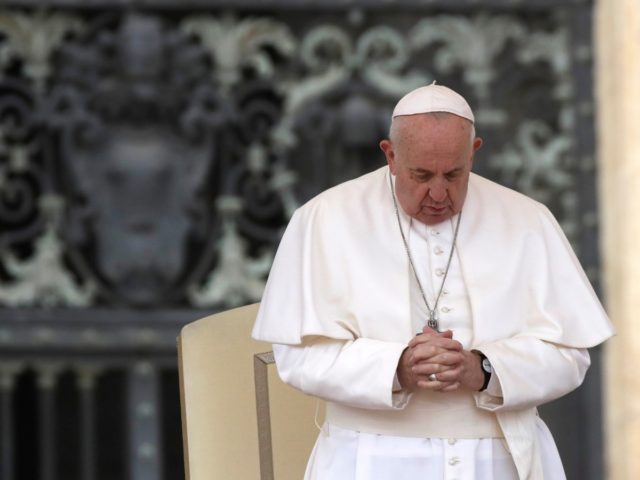ROME — “The people of God need their pastor to be close to them, not to overprotect himself,” Pope Francis says in an interview published Wednesday.
Cardinal Federigo Borromeo really was “a hero of the Milan plague,” the pope notes, in reference to the Italian literary classic The Betrothed. “Yet in one of the chapters he goes to greet a village but with the window of his carriage closed to protect himself. This did not go down well with the people.”
“The people of God need their pastors to be self-sacrificing, like the Capuchins, who stayed close,” Francis added.
In the course of his interview with papal biographer Austen Ivereigh, Pope Francis urges the Church’s pastors to find creative solutions to stay near the faithful and support them, noting that his own confessor continues to visit him every Tuesday so he is never without the sacrament.
As another example, the pope praised the work of an Italian bishop who has gone around to hospitals to offer absolution to the sick, aware that it was his “priestly duty.”
He also counsels the faithful to avoid taking refuge in “escapism” but instead to look for creative, productive uses for their time confined at home. “Always creatively, with a simple creativity, capable of inventing something new each day,” he says.
The pontiff cautions against a temptation to treat the elderly as dispensable, second-class citizens during a pandemic, which is symptomatic of what he calls a “throwaway culture,” which is evident both at the beginning and the end of life.
“I’m thinking, for example, of prenatal selection,” Francis says. “It’s very unusual these days to meet people with Down Syndrome on the street; when the sonogram detects them, they are done away with. It’s a culture of euthanasia, either legal or covert, in which the elderly are given medication but only up to a point.”
According to this neo-Malthusian mentality, “people are selected according to their utility or productivity: the throwaway culture,” he adds.
The pope also proposes that the Christian Church needs to remember its heroism during past plagues, and how its pastors went out to serve the needy in soul and body.
“We need to recover our memory because memory will come to our aid,” he says. “This is not humanity’s first plague; the others have become mere anecdotes. We need to remember our roots, our tradition which is packed full of memories.”
As he has done on other occasion, the pope also holds up the example of our “next-door saints,” all those “doctors, volunteers, religious sisters, priests, shop workers” who are carrying out their duty so that society can keep functioning. These are true “heroes,” he says.
“If we become aware of this miracle of the next-door saints, if we can follow in their footsteps, the miracle will end well, for the good of all. God doesn’t leave things halfway. We are the ones who do that,” he says.

COMMENTS
Please let us know if you're having issues with commenting.